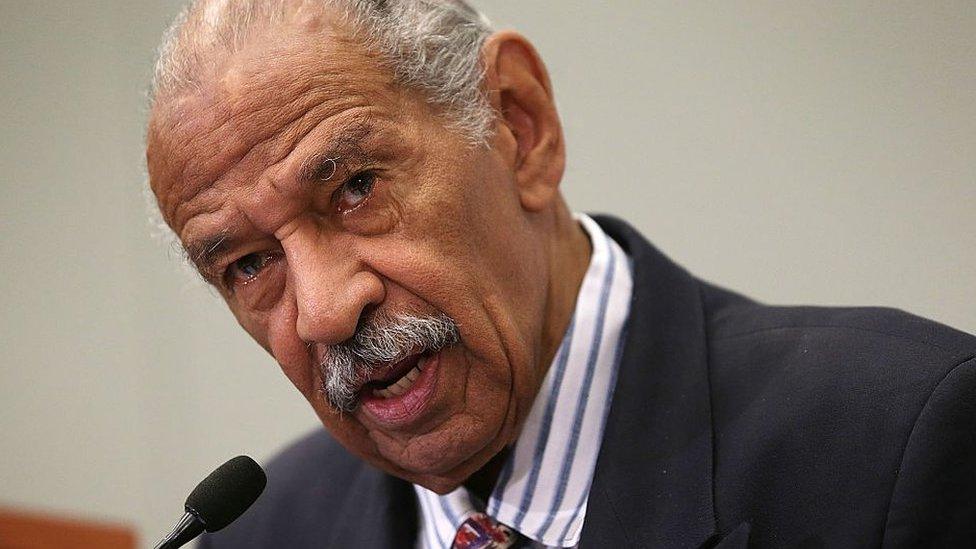John Conyers: Veteran congressman gives up post amid harassment inquiry
- Published

Mr Conyers says he looks forward to "vindicating" himself
The longest-serving member of the US Congress says he is stepping aside as top Democrat on the House Judiciary Committee while sexual harassment allegations are investigated.
John Conyers again denied the accusations, external, but said he was stepping down to clear his name.
A staff member alleges she was fired for refusing to "succumb to sexual advances" from the Michigan Democrat.
A prominent civil rights leader, Mr Conyers first joined Congress in 1965.
The House Ethics Committee has launched an investigation into allegations of sexual harassment and age discrimination involving staff.
On Sunday, Mr Conyers, who is 88, tweeted that he would like to remain as ranking member on the judiciary committee, but that he could not "in good conscience" allow the charges to "undermine" House colleagues.
It was reported on Tuesday that he had paid $27,000 (£20,000) in 2015 in exchange for the confidentiality of a former staff member who alleged she was fired for rejecting sexual advances.
Mr Conyers said that many of the allegations "were raised by documents reportedly paid for by a partisan alt-right blogger".
Allow X content?
This article contains content provided by X. We ask for your permission before anything is loaded, as they may be using cookies and other technologies. You may want to read X’s cookie policy, external and privacy policy, external before accepting. To view this content choose ‘accept and continue’.
The files have not been independently verified by BBC News.
The leader of the Democrats in the House of Representatives, Nancy Pelosi, said it was imperative that Mr Conyers received "due process".
Ms Pelosi called him "an icon" who had advanced women's causes.
However she tweeted, in reference to Mr Conyers, external: "Zero tolerance means consequences... No matter how great an individual's legacy, it is not a license for harassment."
Mr Conyers is the last member of Congress to have been in office under President Lyndon Johnson in the 1960s.
Republican house speaker Paul Ryan has called the allegations "extremely troubling".
- Published20 November 2017

- Published15 November 2017
